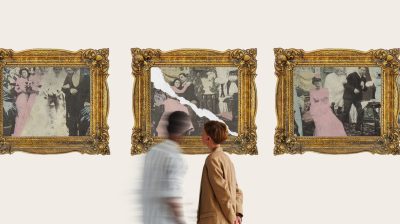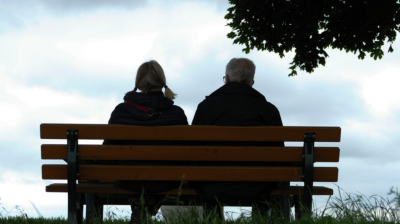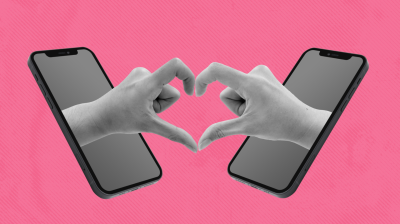How I found the right therapist for me
If you’re not finding your current therapist helpful, you can always try others to find the one that’s best for you

I was around nine years old when my nightmares began. I did not dream of monsters or supernatural beings like most children. I would wake up in cold sweats during the night, after dreaming of constant ridicule and laughter at my expense. I would dream of failure and loneliness. Sometimes, I would witness bad things happening to my loved ones. Little did I know why I was having these dreams in the first place. All my daytime fears became far more alive at night: far more graphic, far more terrifying. Eventually, I could not lie in bed at night without feeling that dreadfully tight ache in my chest and stomach right before I fell asleep. My head would spin and most times, I would lay there and cry for hours.
My fear of opening up
I did not tell anyone how I was feeling. It was only when my daytime panic attacks began that I talked to my mother. She brought me to our family GP, who prescribed me an inhaler for my (supposed) asthma. I remember at that age, with no prior knowledge of mental health or illness, feeling as though something wasn’t quite…right. It was always something more. I wanted to talk to somebody about how I was feeling, but I did not feel comfortable enough with someone I knew personally. I was too embarrassed and afraid. But I knew I couldn’t do this alone. I couldn’t make the pain go away by myself.
I started counselling at the age of thirteen, after six or so months on a waiting list. I had to fill out a form describing how I was feeling and why I believed I needed a counsellor. It felt frightening at the time, giving away such intimate details to a stranger, who knew nothing about me. I thought “what if they don’t pick me? I don’t deserve to be here. There are kids who deserve this spot far more than me.” I knew I needed support and yet I was constantly hesitant.
Learning to stand up for myself
I was assessed by a woman I did not particularly like. She did not feel warm or comforting to me. I felt immediate distrust. I was made to feel that my anxiety was my fault and that I was not helping myself. At the time, something came over me and I simply responded that if I thought I could do this myself, I would, but I can’t and that is why I need counselling. I felt as though I had to prove something. As a child, I felt like I was not being taken seriously. But many kids and teens get anxiety, so we must learn how to manage it better.
I did not allow that woman to get in my head. To this day, I am proud that I stood up for myself. I think many other people might be intimidated by the assessment process. If you feel as though something is not right, regardless of what others are telling you, push as far as you possibly can. I learned the hard way that perhaps it is just the wrong person listening. If you feel there is a problem, issue a complaint to the appropriate body. If I did not stand my ground, who knows where I would be today. I promise there are many wonderful professionals out there willing to support you.
Finding the counsellor (and counselling style) that’s right for you
Just weeks later, I met with another counsellor, who I adored. I felt completely at ease with her from the moment she asked, “so what seems to be the matter?” I told her that I could not simply explain in that one session (not having the faintest clue how counselling worked, or how long I would be there) and she responded with “…And I don’t expect you to. You take as long as you need. I’m here with you.” I met with that counsellor on a weekly basis for over two years.
There are lots of different types of counselling available too. You do not have to go to one-on-one talking counselling if you don’t want to. You can attend group therapy sessions, art therapy, cognitive behavioural therapy, guided self-help therapy…there truly is an array of options to choose from. I personally always enjoyed the traditional one-on-one counselling. If I was not comfortable with a particular style of communication, I requested another and was respected for it. Many young people out there are never told this. If you prefer to do most of the talking, none of it at all, or half and half, you absolutely can. I opted for the latter, where it felt a lot less formal. It took some time for me to ease into the process, but over time, I found myself. I adopted healthier coping strategies and techniques and I would look forward to my sessions because I always felt much lighter afterwards.
Changing the conversation around mental health
Unfortunately, there is still a massive stigma surrounding mental health, specifically access to such support centres, regardless of your age, gender or background. Many of us keep our therapy sessions to ourselves out of fears of worrying our loved ones, or perhaps we are too embarrassed to admit that we need support. Perhaps we fear that counselling “just isn’t right for me”, that it won’t work, or that we’ll come out worse than before we went in. But we will never know unless we try. As someone who has attended long-term counselling from a very young age, I’ve met with four very different counsellors over six years and all of them had a positive impact on my life. I cannot thank them enough for that. Those sessions were my safe space. Regardless of where I am in life today, no matter how many times my mental health takes a dip, I always think back to their advice and support, and I know I can go back to counselling if I need to.






